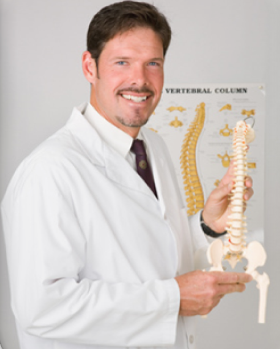Mysterious Aches and Pains: Understanding Thoracic Outlet Syndrome
October 10th, 2021
Do you suffer from Pain or Numbness in Your Arm and Hand?
We will examine one of the possible causes, known as Thoracic Outlet Syndrome. It is a condition that causes pain in the neck, shoulders, and down the arm due to compressed nerves or blood vessels. The small passageway through the thoracic outlet (the area located between your neck and armpit) can be blocked, restricting blood flow and nerve transmission to vital tissues in the arm and hands.
Some factors that might cause a blockage include:
- Enlarged muscles in the area, particularly from weight lifting
- Excessive weight gain
- Tumors in the lung region (a rare condition)
Unfortunately, there is no specific cause found for thoracic outlet syndrome. Symptoms must be evaluated on an individual basis. Extensive tests are often conducted to diagnose a true thoracic outlet syndrome.
Here’s a quick and easy way to determine if you or someone you know might be suffering from thoracic outlet syndrome.
Common signs include:
- Mild to severe pain in the neck, shoulder, and arm
- Tingling/numbness in the arms and/or hands
- Signs of poor circulation in your hands, like having “cold hands”
- Weak grip strength in one arm relative to the other
If these symptoms seem familiar, a visit to your physical therapist could lead to answers and relief, often using conservative treatment options that include exercises.
Simple, Powerful Remedies
If you’re suffering from thoracic outlet syndrome symptoms, there are a few things you can do at home to help ease your discomfort.
- Avoid overhead work, especially for prolonged periods of time.
- If you tend to sleep with one arm positioned above your head, try to train yourself to keep your arms by your side.
- If you do a lot of typing or other tiring arm and hand work during the day, be sure to take short, frequent breaks to give your muscles a chance to rest.
- Stay away from lifting heavy objects as often as you can.
Stretch, Strengthen, and Improve Posture
Gentle stretches, progressive strengthening, and postural reeducation go a long way to treat this condition. We recommend that you diligently follow our exercise program. Our commitment to quality and pain relief assures you a comprehensive evaluation and a specific, targeted program to help you recover quickly. The treatment for thoracic outlet syndrome can be conservative but may require surgery in some cases. The sooner we see you, the more we can do to help you recover.
 A comprehensive rehabilitation program, the kind that we provide, will help strengthen the muscles surrounding the shoulder so that they are better able to support the involved region. Here’s what you may be looking at, in terms of treatment options:
A comprehensive rehabilitation program, the kind that we provide, will help strengthen the muscles surrounding the shoulder so that they are better able to support the involved region. Here’s what you may be looking at, in terms of treatment options:
- Postural exercises can help you stand and sit straighter, which significantly decreases the pressure on the nerves and blood vessels.
- Nonsteroidal anti-inflammatory drugs, as prescribed by your doctor, can ease the pain. If you are overweight, your physician may recommend a weight loss program.
- You may need to change your workstation and avoid strenuous activities. Talk to a physical therapist about the best ergonomic set-up for your workstation.
- In some instances, when conservative treatment fails, surgery is the last resort. The surgery involves dividing a muscle in the neck and removing a portion of the first rib.
Thoracic outlet syndrome can be a painful and frustrating condition, especially when it inhibits a person from enjoying daily activities. The good news is that thoracic outlet syndrome is treatable, often times with stretching exercises (among other treatments) that your physical therapist and rehabilitation team recommends.
As with every condition, the sooner you come in for help with your pain, the faster your recovery will be.
Schedule your consultation with us today to be on the road to recovery.